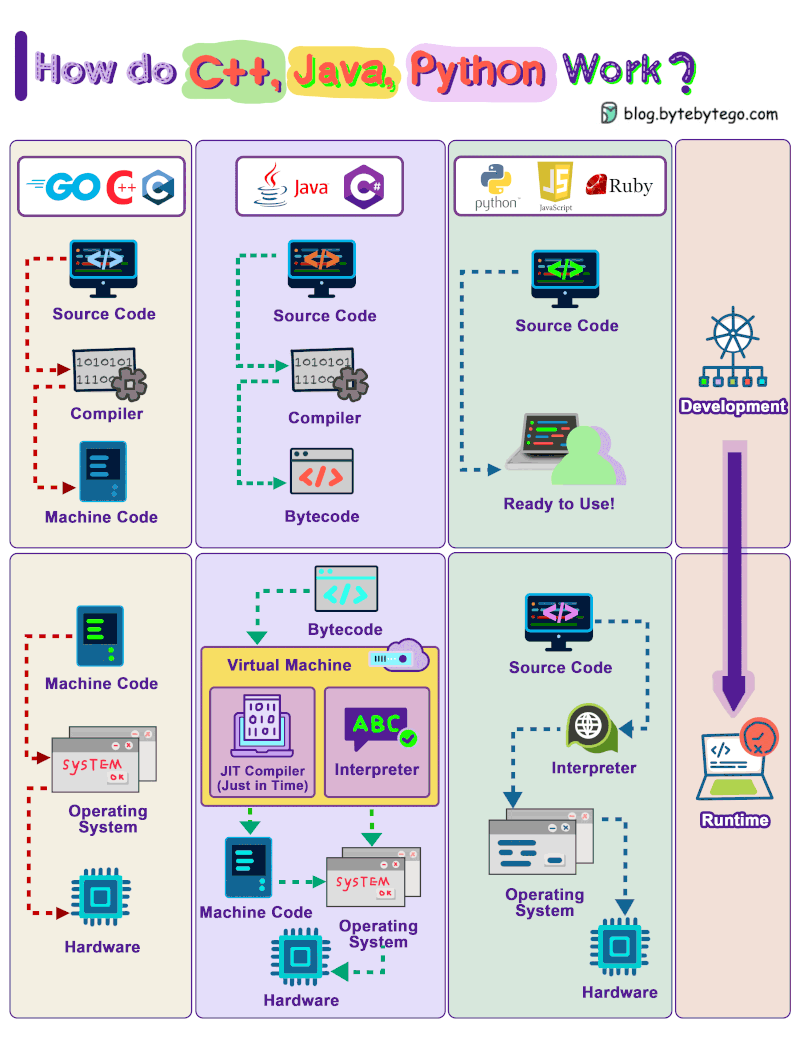How Do C++, Java, and Python Function?

The illustration details the processes of compilation and execution.
Languages that compile transform source code into machine code using a compiler. This machine code can subsequently be run directly by the CPU. For instance: C, C++, Go.
In contrast, languages like Java first convert the source code into bytecode. The Java Virtual Machine (JVM) then runs the program. Occasionally, a Just-In-Time (JIT) compiler translates the source code into machine code to enhance execution speed. Some examples are Java and C#.
Languages that are interpreted don't undergo compilation. Instead, their code is processed by an interpreter during execution. Python, Javascript, and Ruby are some examples.
Generally, compiled languages have a speed advantage over interpreted ones.
Comments ()